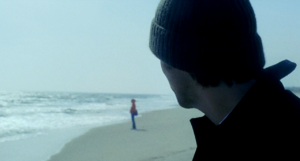 Mrs. T and I are staying at an antebellum inn
Mrs. T and I are staying at an antebellum inn
in Jaffrey, the New Hampshire village where Willa Cather is buried. It’s a bit more than a stone’s throw from Peterborough, home of the Peterborough Players, a summer-stock theater company that I’ve been reviewing regularly for the past decade. In addition, Peterborough is also the home of the MacDowell Colony, the celebrated artists’ colony where I spent five weeks in the summer of 2012 working on Duke and Satchmo at the Waldorf, in the process coming to see myself not merely as a critic but also as an artist. For that reason alone, Peterborough and Jaffrey will always share a special place in my heart.
It happens that my mother died that same summer. Because the last five years have been unusually eventful, it scarcely seems possible that so much time has passed since her death and my stay at MacDowell. Both events remain deeply etched in my memory. Indeed, I dreamed about my mother on the night that Mrs. T and I came to Jaffrey. I don’t do that often, nor are my dreams upsetting in any way: I always see her as the healthy and happy woman who raised me, not the pitiable creature wasted by pain whom I saw for the last time on her deathbed and, a couple of days later, in her coffin. Yet they are jolting all the same, and I suspect they always will be, and perhaps should be.
The best show I’ve ever seen in Peterborough was a 2008 revival of Our Town, which Thornton Wilder wrote in part at the MacDowell Colony and which is widely thought to be, at least in part, a portrait of Peterborough itself. It starred James Whitmore, who was eighty-six years old and (though no one knew it at the time) was dying of cancer, as the Stage Manager. Hearing him speak Wilder’s beautiful lines about how the dead “get weaned away from earth” inspired me to write these words:
For those of us still on earth, straining to make something of ourselves, it seems there is no weaning away from the people we love and lose: they are always there, dissolved into the completeness of eternity, waiting patiently–and, I suspect, indifferently–for the little resurrection that is memory.
 What I suspected nine years ago, I know now. The loss of a loved one tears a permanent hole in the fabric of our existence. We learn in time to look away from it and walk around it, but that doesn’t mean it isn’t there. The past, good and bad alike, is with us for as long as our memories are with us—and who in his heart of hearts would truly want it to be otherwise? I know how lucky I am to have what I have because I remember what it felt like not to have it. Without shadow, there is no light; without death, no life.
What I suspected nine years ago, I know now. The loss of a loved one tears a permanent hole in the fabric of our existence. We learn in time to look away from it and walk around it, but that doesn’t mean it isn’t there. The past, good and bad alike, is with us for as long as our memories are with us—and who in his heart of hearts would truly want it to be otherwise? I know how lucky I am to have what I have because I remember what it felt like not to have it. Without shadow, there is no light; without death, no life.
* * *
Ned Rorem’s “Little Elegy,” performed by Phyllis Curtin and the composer. The text is by Elinor Wylie:
An abridged radio adaptation by Erik Barnouw of Our Town, originally broadcast on September 29, 1946, on Theatre Guild on the Air. The roles of the Stage Manager and Emily are played by Thornton Wilder and Dorothy McGuire:
